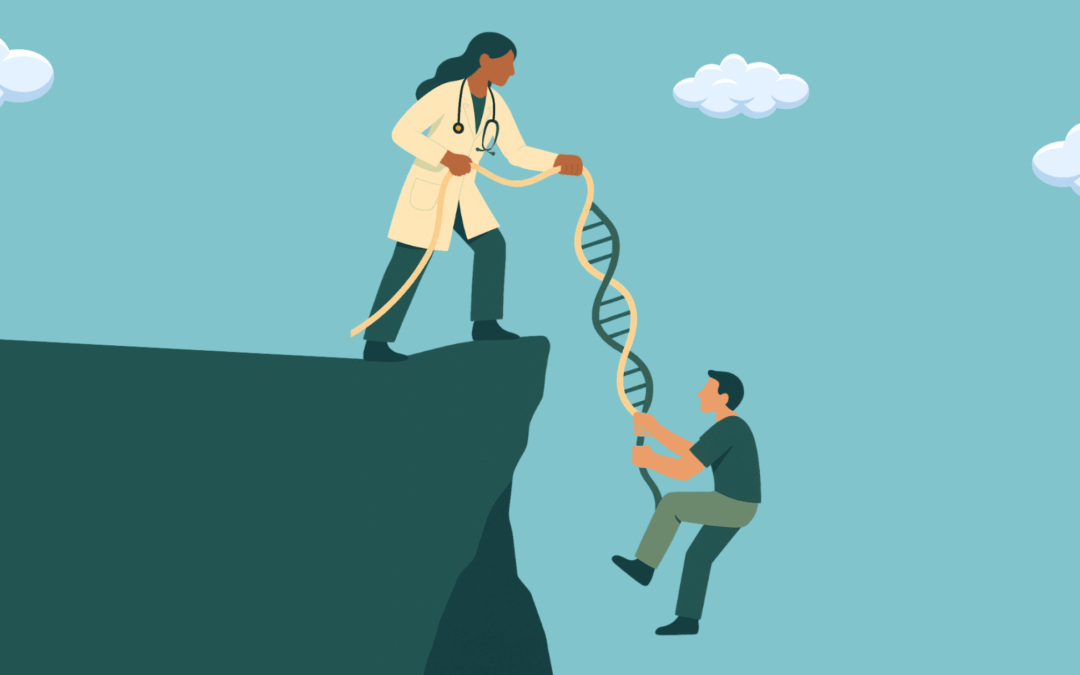You’ve seen the ads: a cheek swab, a few weeks of waiting, and suddenly you’re empowered with a map of your future. Consumer genetic tests promise clarity, control, and sometimes even a little adventure. “Eat for your genes!” “Discover your ancestry!” “Personalize your health journey!”
And yet, for many people, those results don’t lead to action. A genetic risk report might spark curiosity, even concern, but too often it ends there. No follow-up appointment. No lifestyle changes. Just a PDF gathering digital dust.
It’s not because the science isn’t real. It’s because behavior initiation and change is hard, and insight alone doesn’t drive change.
Knowing Isn’t Doing
Personalized medicine and genomics are ushering in an exciting new era of healthcare, one where interventions can be tailored to your individual biology, not broad population norms. But without the correct behavioral support, the system ends up putting powerful tools into patients’ hands without helping them use those tools.
This is the behavioral gap in precision health. And it’s one that can’t be closed with technology or data alone.
At Lirio, we see this gap as a design challenge that behavioral science powered by artificial intelligence is uniquely suited to solve.
A Personalized Plan Still Needs a Personalized Path
Just because a patient or member learns they’re at higher genetic risk for heart disease or medication complications doesn’t mean they know what to do about it. Or feel ready to do anything at all.
That’s where behavioral design comes in. It allows us to:
- Understand how different people respond emotionally and cognitively to complex health information
- Identify where decision making breaks down
- Build adaptive digital experiences that guide people step-by-step toward meaningful action
For example, two people might get almost identical genetic results but respond in entirely different ways. For some, it’s empowering a chance to take proactive steps. For others, the results could trigger avoidance, overwhelm or even provoke fatalism. “If it’s in my genes what can I actually do?” These reactions are not always spoken but can surface through subtle behaviors. AI can detect these signals across touchpoints, revealing underlying emotional states and can ensure that the most relevant behaviorally designed content reaches the individual to overcome their barrier offering encouragement, simplification, or reassurance depending on what each person needs to move forward. The goal isn’t just awareness. It’s personalized momentum grounded in real behavior and guided with precision.
From Precision Insight to Precision Action
Lirio’s platform combines behavioral science, AI, and healthcare expertise to deliver hyper-personalized digital journeys nudging people toward the right next step, at the right time, in the right way this right step will vary individual to individual.
In other words, we bring precision to the behavioral side of precision medicine.
Whether it’s scheduling a follow-up consult, discussing results with a provider, starting a preventive medication, or making a small lifestyle change, we help patients and members act on the insights that personalized medicine makes possible.
Why Behavior Change Science Is Crucial Now
As healthcare becomes more individualized, the challenge of getting patients to act on complex, nuanced information is only growing. And for many populations, especially those historically underserved, this gap can deepen existing inequities.
Behavioral science isn’t just about nudging more people to act. It’s about designing equitable, emotionally intelligent pathways that support real humans in real contexts.
Because in the end, data doesn’t change outcomes. People do, when we help them see and take the steps that are right for them.
Learn how to close the behavioral gap in precision health
Don't miss your chance to sign up for early access to the health system market report here.
